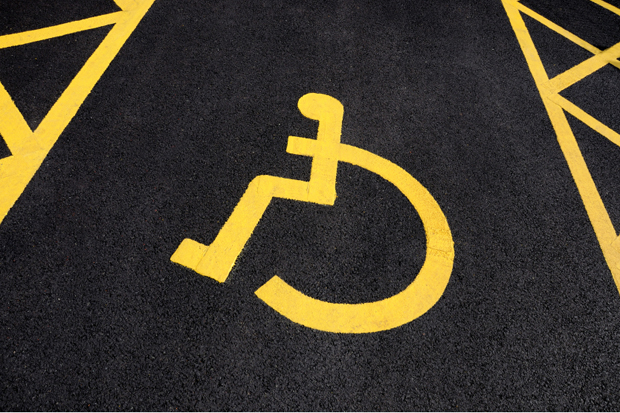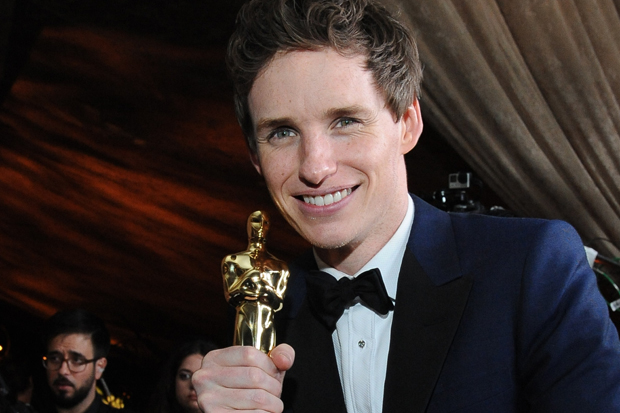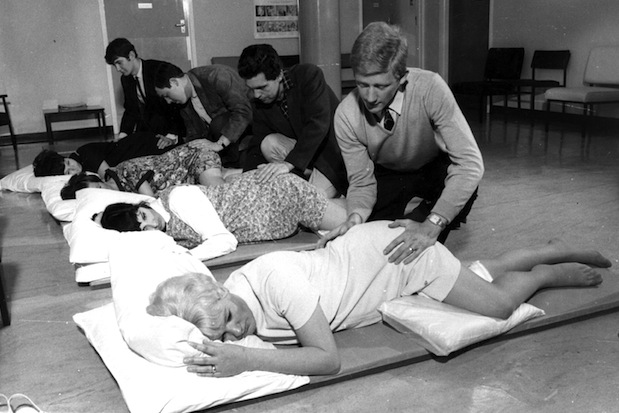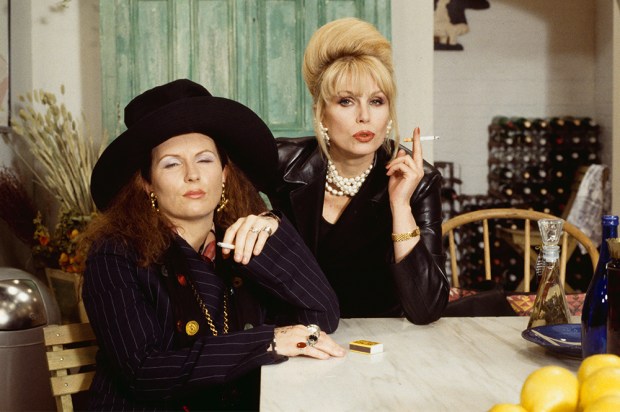I knew that the historian Sir Richard Evans was a rather abrasive and quarrelsome man, but I was staggered by his vicious attack on Michael Gove in the Guardian last week. Here’s Evans’s first sentence: ‘Gove presided over the disintegration of our school system; he opened up teaching to untrained people in state schools, because he had contempt for professional educationalists. The restoration of professional teaching in our schools must now be an urgent priority.’ What? Those who follow these things will know that the two men have a history of exchanging insults, but how bizarre of Evans to vent his spleen on untrained teachers. Many great teachers are untrained enthusiasts for their subject, or people with a natural talent for working with children. But in any case teacher training is often painfully inadequate. I know whereof I speak because I myself am a qualified teacher. The only useful part of my course was the term spent as a student teacher, learning on the job — which is Gove’s preferred method. And by the way, Richard Evans teaches at a university — was he trained as a teacher?
Whenever I see an obese person, my first thought is ‘there but for the grace of God go I’. All of us who suffer from a tendency to compulsive eating know that gorging oneself is not just extremely pleasurable and comforting, it also acts as an effective anaesthetic — keeping depression and feelings of inadequacy at bay. Of course becoming very fat is in itself distressing (whatever obese people may say to the contrary) so the need for comfort food gets ever more urgent. But can the chief legal adviser at the European Court of Justice be right in his recent opinion that the severely obese should be classified as disabled? If this advice is adopted, people whose vast size affects their work would have to be protected like other disabled persons, and be entitled to such benefits as disabled parking places. In other words, the consequences of their overeating would be borne by their employers. The argument is that risk-takers, sports people for example, also bring disability upon themselves and that the origin of the disability is irrelevant. A spurious analogy, it seems to me. I feel sorry for the obese, but should they be rewarded for a lifetime’s failure to exert self-restraint?
Listening to various media discussions in recent days, I have heard the word ‘issues’ countless times. It has become an all-purpose euphemism. Euphemisms always reflect the attitudes of the society in which they appear. The function of ‘issues’ is to fudge and make the speaker seem non-judgmental. As in: ‘He has comprehension issues’ (is not very bright), or ‘she has skin issues’ (spots, wrinkles). If someone says they have ‘issues’ with, for example, David Cameron, they may mean they despise Cameron because he demoted Michael Gove, or they may mean that they don’t like his haircut. What a cop-out.
I have been reading Adam Zamoyski’s gripping 1812: Napoleon’s Fatal March on Moscow. Its graphic details of the sufferings of the 500,000 or so soldiers who embarked on this ill-prepared campaign are horrific. On the way to Moscow, when thousands died in the sweltering heat, soldiers would be forced to drink horses’ urine, or to dig holes in the ground and wait for them to fill with water — but it was full of worms. On the retreat, when thousands froze to death, ice formed in their noses, while their lips were stuck together so that they couldn’t breathe. Their toes and fingers fell off. They had to cut away bits of gangrene from their own bodies. As for food: ‘No fallen horse, or cattle remained uneaten, no dog, no cat, no carrion, nor, indeed, the corpses of those who died of cold or hunger.’ About three quarters of Napoleon’s grande armée perished. But many of the survivors still continued to chant ‘Vive l’Empereur!’
It’s almost impossible to get a doctor to visit your home on a Sunday — you have to go to A&E. But I was suffering, last weekend, from a non-medical emergency. We had ten people to stay when our dishwasher broke down. I tried many plumbers, but no luck. Finally, I rang someone listed as a ‘Drain Doctor’. Could he be real? He was. Within minutes a George Clooney lookalike appeared. He had a reassuring machine-side manner and cured the dishwasher with great aplomb. All the women present swooned.
In my last Spectator diary, I gave some examples of mortifying gaffes I’ve made by not reading my emails carefully. Unfortunately I failed to follow my own advice. I invited someone — not a close friend — for lunch. ‘I hope you won’t have difficulties parking’ went out as: ‘I hope you won’t have difficulties partaking.’
Got something to add? Join the discussion and comment below.
Get 10 issues for just $10
Subscribe to The Spectator Australia today for the next 10 magazine issues, plus full online access, for just $10.
Miriam Gross’s memoir, An Almost English Life, is published by Short Books.
You might disagree with half of it, but you’ll enjoy reading all of it. Try your first month for free, then just $2 a week for the remainder of your first year.














Comments
Don't miss out
Join the conversation with other Spectator Australia readers. Subscribe to leave a comment.
SUBSCRIBEAlready a subscriber? Log in